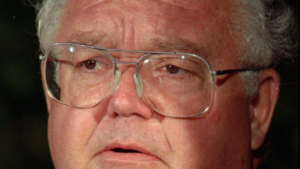For complacent Israelis and occupied Palestinians, there’s no peace, the world is distracted, and a disaster is around the corner. There’s only one way out – and it’s a solution that has surprisingly solid support
I have spent at least half my working life on Israeli-Palestinian peace, or writing about it, whether as an activist, working in NGOs, or as an academic. The general wisdom today is that nothing is happening on the peace front, and now is a particularly unfruitful time for new initiatives.
As it occasionally is, that general wisdom is correct. But to go further and assume that this is likely to remain so for five, ten, or 20 years, by no means follows. On the contrary, the few times that Israelis allowed themselves to think that things were nicely sewn up for the foreseeable future were when the greatest surprises occurred.
Most of these surprises were not pleasant. But they opened things up and changed the whole situation – and the conflict – fundamentally.
Currently, we are indeed stuck with a set of circumstances which conspire to prevent progress, concentric and interlocking factors tied to Israel, Palestine, the Middle East and the world in general.
As usual, Israel finds itself on top. Economically, it benefits enormously from its military-fed high-tech industry, and its totally unexpected natural gas windfall is now paying off handsomely, even as the economy continually becomes increasingly unequal.
Israel has long-since routinized its control of the populations of the West Bank and Gaza, and the occasional outbreaks, violent or political, that do occur are rarely uncontained; whether rockets from Gaza or the fallout from beating up a funeral procession.
Between its legacy institutions, U.S. support, and its own economic prowess, Israel maintains its membership in the democratic club.
And the icing on the cake is a selectively paralyzed political system that more or less works for most things but is, by design, absolutely immobile when it comes to anything to do with the Palestinians. The two-state solution remains the world’s mantra, to the amusement of most Israelis, who have long since tossed it out, finding no need to replace it with anything at all.

The Palestinians are conveniently where Israel wants them, thanks both to Israeli strength and their own mistakes. Their political system is comprehensively paralyzed, run by an 87 year-old man who has long since lost the confidence of the vast majority of his constituents and is now in the 18th year of a four year term, staving off elections as necessary.
Palestinians are split between the West Bank and Gaza by a political enmity that Israel plays like a violin virtuoso (with occasional lapses). They have also (seemingly definitively) lost their status as the apple of the Arab world’s eye, a status they had managed to keep alive for at least six decades.
Their international civil society support, emblemized by BDS, has ballooned in popularity but does them little good, succeeding primarily in creating Israeli solidarity through a conviction that the whole world hates Israel. Even that putative success is a failure.
Internationally, there is immense unease with the situation, but none leading towards Israeli-Palestinian peace. The Abraham Accords represent one of Donald Trump’s rare – perhaps sole – triumph in international affairs, the more so for his supporters because it has paralyzed the Israeli left, which still cannot comprehend nor deal with the Arab world’s abandonment of the Palestinians while much of it embraces Israel.

Russia’s invasion of Ukraine has now drained away all of the West’s attention, with very little left for anything else. Only occasional Middle Eastern events can penetrate the stark hold Ukraine has understandably cast over most of the world’s liberal public. Even the balance of terror Israel maintains with Iran/Hezbollah has little chance of disturbing the equilibrium and none of helping the Palestinians.
The situation of stalemate in Israel’s favor reminds me of 1967, 1973, and 1987. In the first case, Israel’s expectation of stability was blown up by the Six Day War, the second by the Yom Kippur War, and the third by the First Intifada, leading to the decade of Oslo.
Note that I am not by any means predicting Israel becoming involved in a full-scale war, which is unlikely for a host of reasons. Rather, one or more of the unstable forces propping up the present stalemate with the Palestinians is likely to collapse, sooner rather than later. Intifada? Some consequence of climate change? A major geopolitical shift? There is no telling what it might be.
Israel’s shell-shocked peace forces have been using their meager resources lately to try to protect Palestinians being evicted in Sheikh Jarrah, the south Hebron Hills, and elsewhere, with mixed success. While admirable on a human level, they’d be the first to admit these are band-aids on the larger problem.

The only old/new comprehensive idea to arise in the last few years is confederation, sort of a Two State Solution 2.0.
It advocates an E.U.-type arrangement between a Palestinian state and Israel, soft borders, a shared Jerusalem, and for settlements to remain in place within a Palestinian state.
Encouragingly, much of the center-left in Israel seems to regard it favorably. According to pollsters Khalil Shikaki and Dahlia Scheindlin, support for confederation among the Israeli Jewish left “has risen consistently…from 35 percent in the first survey (December 2016) to 56 percent [in August 2020],” and has reached an absolute majority among this group.
This majority is perhaps less obvious in general perceptions and political activity, because many of them are seeing no likely way to get from here to there. The same poll indicates that among Israelis as a whole and among (non-Israeli) Palestinians, support for confederation is almost identical: about 30 percent.
Currently there probably isn’t any feasible path to a confederal arrangement – or any mutually-acceptable solution – without one of the eventual structural shocks posited above. There is an infinitude of events that may happen, but a very small universe of solutions that can provide peace and national self-determination, along with a measure of justice, for both Israelis and Palestinians.
Confederation is one of the few left standing. It might be the only port left in the storm that will eventually roll in.
Paul Scham is president of Partners for Progressive Israel and Director of the Gildenhorn Institute for Israel Studies at the University of Maryland, where he is a Professor of Israel Studies




